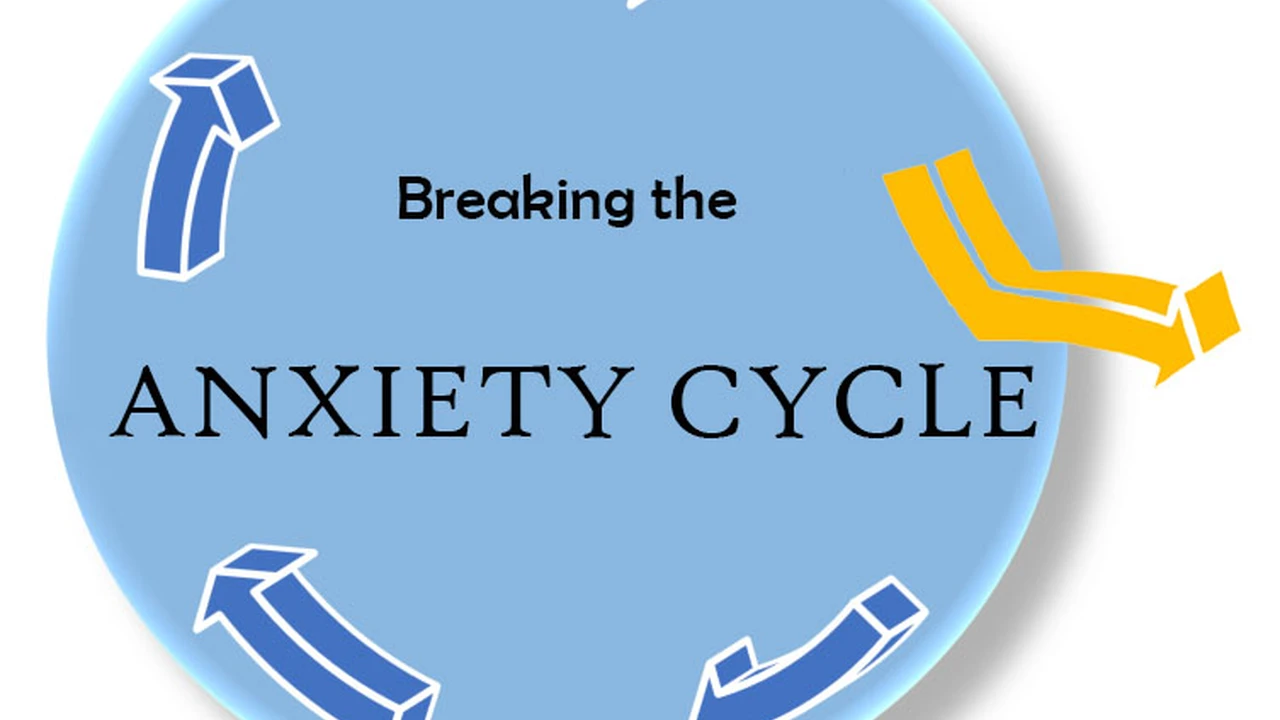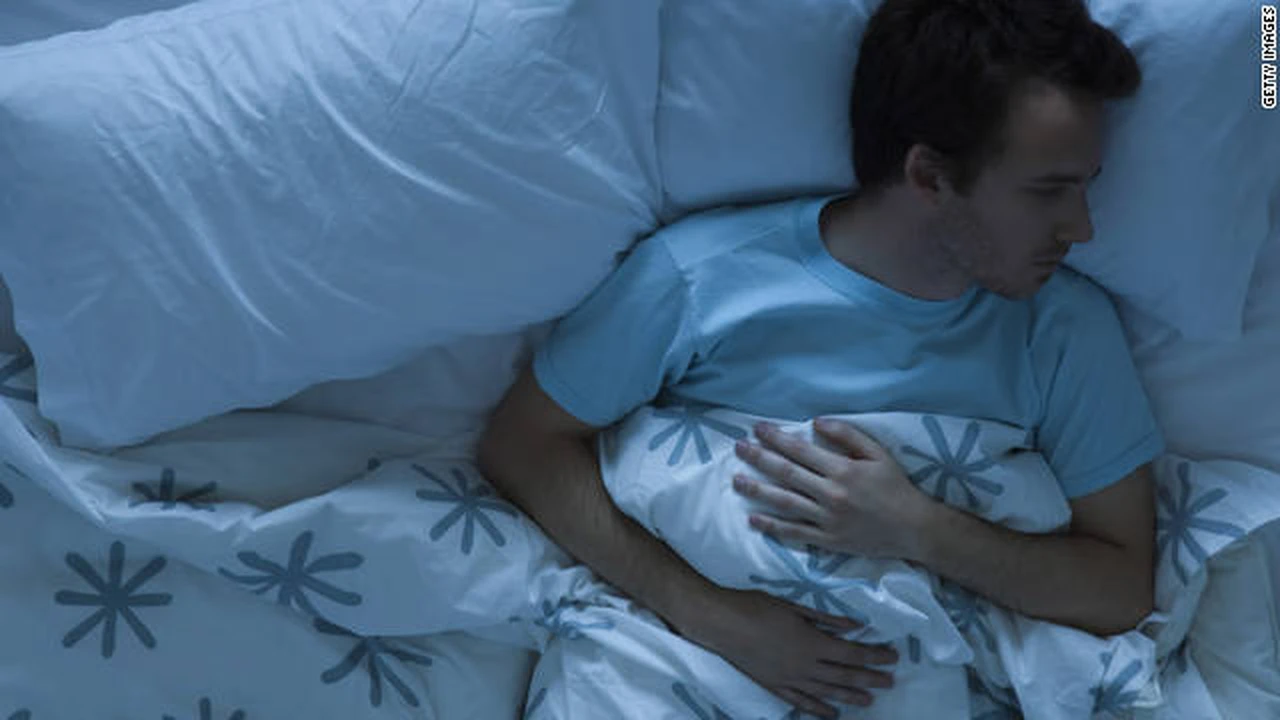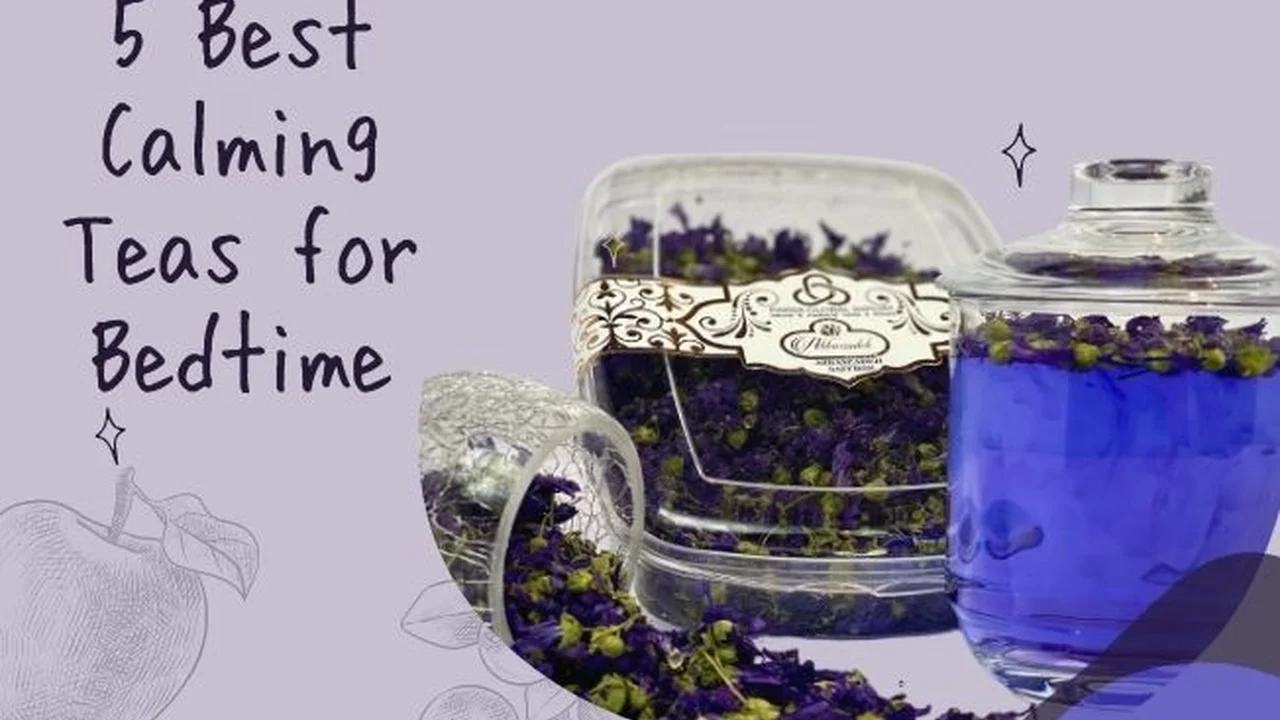Sleep and Anxiety: Breaking the Cycle
Sample meta description.

Understanding the Intricate Link Between Sleep and Anxiety
Hey there! Ever feel like your brain is doing the tango at 3 AM while your body just wants to sleep? Yeah, you're not alone. Sleep and anxiety are like two peas in a pod, except one's trying to catch some Zzz's and the other's throwing a rave. Let’s dive deep into how these two are connected, because knowing is half the battle.
Anxiety, that nagging feeling that something's not quite right, can manifest in many ways, and one of the most common is sleep disturbance. Think about it: when you're stressed, your body releases cortisol, a stress hormone. Cortisol keeps you alert and ready for action – great if you're running from a bear, not so great when you're trying to drift off to dreamland. This elevated cortisol can lead to insomnia, frequent awakenings, or just plain restless sleep. The cycle then repeats itself because lack of sleep exacerbates anxiety, making it even harder to fall asleep the next night. It's a vicious circle, right?
On the flip side, chronic sleep deprivation can actually *cause* anxiety. When you're constantly running on fumes, your brain doesn't function optimally. This can lead to heightened emotional reactivity, making you more prone to worry and fear. Think of it like trying to drive a car with a flat tire – it's going to be a bumpy, stressful ride!
Recognizing the Symptoms: Sleep and Anxiety Manifestations
So, how do you know if your sleep problems are related to anxiety? Here are some common signs to look out for:
- Difficulty falling asleep (insomnia): You're lying in bed, wide awake, your mind racing with thoughts.
- Frequent awakenings during the night: You wake up several times, often feeling anxious or restless.
- Difficulty staying asleep: You fall asleep easily but wake up after only a few hours and can't get back to sleep.
- Racing thoughts at bedtime: Your brain is a hamster on a wheel, churning out worries and anxieties.
- Nightmares or disturbing dreams: Your subconscious is working overtime, processing your anxieties in vivid and unsettling ways.
- Feeling tired and unrefreshed despite getting enough hours of sleep: You wake up feeling like you haven't slept at all.
- Physical symptoms of anxiety: Heart palpitations, sweating, trembling, muscle tension, stomach upset. These can all interfere with sleep.
If you're experiencing several of these symptoms, it's a good idea to talk to your doctor or a mental health professional. They can help you determine the underlying cause of your sleep problems and develop a treatment plan that's right for you.
Practical Strategies: Breaking Free from the Anxiety-Sleep Cycle
Alright, enough doom and gloom! Let's talk about some actionable steps you can take to break free from the anxiety-sleep cycle. These are things you can start implementing today, without needing a prescription or a therapist (although those are great resources too!).
Establishing a Consistent Sleep Schedule for Anxiety Relief
Our bodies thrive on routine. Going to bed and waking up at the same time every day, even on weekends, helps regulate your body's natural sleep-wake cycle (circadian rhythm). This makes it easier to fall asleep and wake up feeling refreshed. Think of it as training your body to expect sleep at a certain time. It's like setting an internal alarm clock!
Creating a Relaxing Bedtime Routine for Anxiety Reduction
Wind down before bed. Avoid screens (phones, tablets, computers, TVs) for at least an hour before bedtime. The blue light emitted from these devices can interfere with melatonin production, a hormone that regulates sleep. Instead, try reading a book, taking a warm bath, listening to calming music, or practicing gentle stretching. Think of it as creating a buffer between your busy day and your restful night.
Optimizing Your Sleep Environment for Better Sleep and Less Anxiety
Make your bedroom a sleep sanctuary. Keep it dark, quiet, and cool. Use blackout curtains, earplugs, or a white noise machine to block out distractions. A comfortable mattress and pillows are also essential. Your bed should be a place you associate with relaxation and sleep, not work or stress.
Mindfulness and Meditation Techniques for Calming Anxiety Before Sleep
Practice mindfulness and meditation. These techniques can help you quiet your mind and reduce anxiety. There are many guided meditation apps and online resources available. Even just a few minutes of deep breathing exercises before bed can make a difference. Try focusing on your breath and letting go of thoughts as they arise, without judgment.
The Power of Exercise and Diet in Managing Anxiety and Promoting Sleep
Get regular exercise. Physical activity can help reduce anxiety and improve sleep. However, avoid intense exercise close to bedtime, as it can be stimulating. A brisk walk in the afternoon is a great option. Also, watch what you eat and drink. Avoid caffeine and alcohol before bed, as they can disrupt sleep. A light snack containing complex carbohydrates, such as whole-grain crackers with cheese, can actually promote relaxation.
Cognitive Behavioral Therapy for Insomnia (CBT-I) as a Treatment Option
Consider Cognitive Behavioral Therapy for Insomnia (CBT-I). This is a structured program that helps you identify and change thoughts and behaviors that are interfering with your sleep. It's a highly effective treatment for insomnia and can be done with a therapist or through online programs.
Product Recommendations: Sleep Aids for Anxiety Relief
Sometimes, even with the best sleep hygiene practices, you might need a little extra help. Here are some product recommendations that can assist with sleep and anxiety:
Weighted Blankets: A Hug for Your Nervous System
Product: Gravity Blanket Use Case: Feeling anxious and restless at night. The gentle pressure of the weighted blanket can help calm your nervous system and promote relaxation. Comparison: Gravity Blanket is a premium brand known for its quality and even weight distribution. Other options include YnM Weighted Blanket (more affordable) and Bearaby Tree Napper (chunky knit design). Price: Gravity Blanket ranges from $200-$300 depending on size and weight.
White Noise Machines: Drowning Out the Distractions
Product: LectroFan White Noise Machine Use Case: Living in a noisy environment or having trouble blocking out distractions. White noise can mask disruptive sounds and create a more peaceful sleep environment. Comparison: LectroFan offers a variety of white noise and fan sounds. Other options include Marpac Dohm (classic white noise machine) and Hatch Restore (sound machine, sunrise alarm, and meditation device). Price: LectroFan is around $50-$70.
Essential Oil Diffusers: Aromatherapy for Relaxation
Product: Vitruvi Stone Diffuser Use Case: Creating a relaxing and calming atmosphere in your bedroom. Certain essential oils, such as lavender and chamomile, have been shown to reduce anxiety and promote sleep. Comparison: Vitruvi Stone Diffuser is aesthetically pleasing and covers a large area. Other options include InnoGear Essential Oil Diffuser (more affordable) and doTERRA Aroma Lite Diffuser (designed for use with doTERRA essential oils). Price: Vitruvi Stone Diffuser is around $120.
Sleep Masks: Blocking Out the Light
Product: Manta Sleep Mask Use Case: Blocking out all light for deeper, more restful sleep. Comparison: Manta Sleep Mask is known for its customizable eye cups that ensure no pressure on your eyes. Other options include Alaska Bear Natural Silk Sleep Mask (affordable and comfortable) and Nidra Deep Rest Sleep Mask (contoured design). Price: Manta Sleep Mask is around $35.
Magnesium Supplements: Supporting Relaxation and Sleep
Product: Natural Calm Magnesium Citrate Powder Use Case: Magnesium deficiency can contribute to anxiety and sleep problems. Magnesium supplements can help promote relaxation and improve sleep quality. Comparison: Natural Calm is a popular magnesium citrate powder that is easily absorbed. Other options include Magnesium Glycinate (gentle on the stomach) and Epsom Salt baths (topical magnesium absorption). Consult your doctor before starting any new supplement regimen. Price: Natural Calm is around $25.
Embrace the Journey to Better Sleep and Reduced Anxiety
Remember, breaking the cycle of sleep and anxiety is a journey, not a destination. Be patient with yourself, experiment with different strategies, and don't be afraid to seek professional help if you need it. You deserve to get a good night's sleep and live a life free from anxiety. You got this!
:max_bytes(150000):strip_icc()/277019-baked-pork-chops-with-cream-of-mushroom-soup-DDMFS-beauty-4x3-BG-7505-5762b731cf30447d9cbbbbbf387beafa.jpg)






